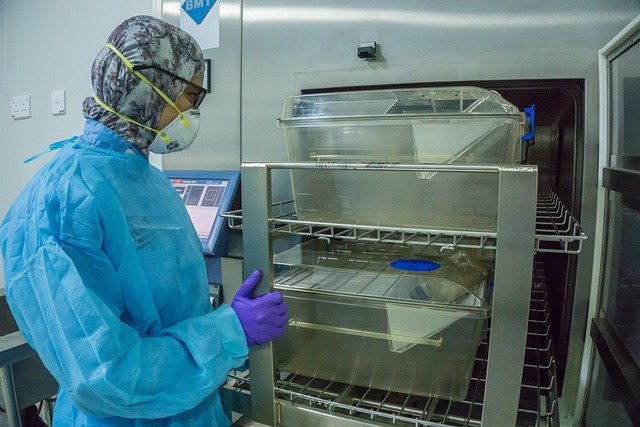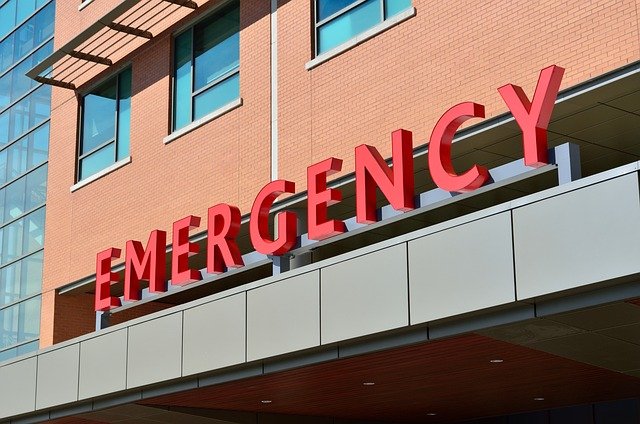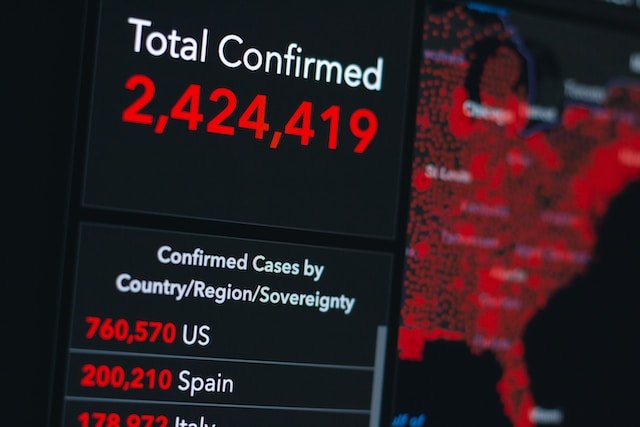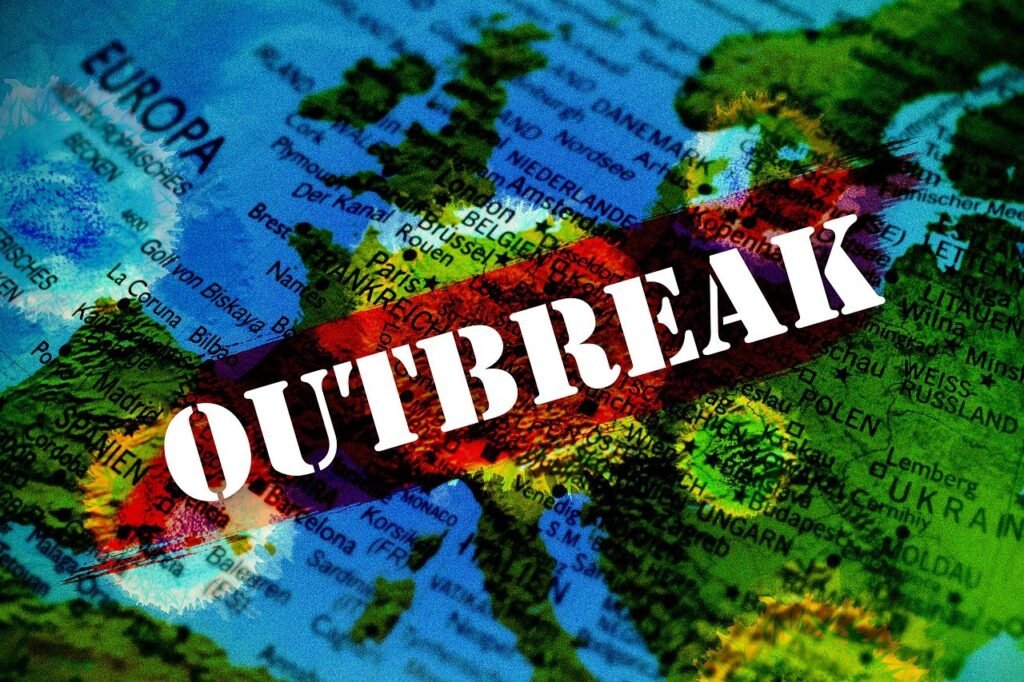A global pandemic, a term that once seemed like a scenario from a distant past, has become an inescapable reality in our interconnected world.
Defined as an outbreak of a disease that occurs over a wide geographic area and affects an exceptionally high proportion of the global population, pandemics have reshaped societies, strained healthcare systems, and left lasting imprints on human history.
This blog post explores the many facets of global pandemics, including their causes, effects on health systems, social and economic fallout, public health reactions, international collaboration, and the important lessons they teach us.
Table of Contents
Historical Perspective

Past Global Pandemics
Several devastating pandemics have shaped civilizations throughout human history.
The Spanish flu of 1918, one of the deadliest pandemics in recorded history, claimed millions of lives worldwide, leaving communities in grief and challenging the resilience of nations.
The H1N1 influenza pandemic of 2009, commonly known as swine flu, brought a new wave of challenges into the 21st century.
More recently, the COVID-19 pandemic, caused by the novel coronavirus SARS-CoV-2, rocked the foundations of global health systems and economies, highlighting the vulnerabilities of our interconnected world.
By studying these pandemics, we gain invaluable insights into disease spread patterns, societal responses, and the evolution of medical interventions.
Lessons Learned from Previous Pandemics
Historical pandemics serve as stark reminders of our shared vulnerability and the need for preparedness.
From the Spanish flu, we learned the importance of timely and transparent communication, as well as the significance of community engagement in implementing preventive measures.
The H1N1 pandemic underscored the critical role of vaccines in curbing the spread of infectious diseases, leading to advancements in vaccine development and distribution strategies.
The COVID-19 pandemic, while unprecedented in its scale and impact, emphasized the importance of global collaboration, scientific innovation, and adaptive healthcare systems.
These lessons from the past inform our present responses and shape the strategies for future pandemics, highlighting the imperative of continuous research, international cooperation, and resilient healthcare infrastructures.
As we reflect on these historical pandemics, we recognize the resilience of humanity in the face of adversity.
By understanding the challenges overcome and the progress made, we are better equipped to confront the uncertainties of the future, forging a path towards a world where pandemics do not cause widespread suffering and where our collective efforts lead to swift, effective responses, ensuring the well-being of all.
Causes and Spread

Origin of Pandemics
Pandemics often find their origins in zoonotic diseases, where pathogens jump from animals to humans.
The proximity between humans and wildlife, especially in regions where deforestation and urbanization encroach upon natural habitats, increases the likelihood of these spillover events.
Understanding the dynamics of zoonotic transmission is essential to predicting and preventing future pandemics. Additionally, the ability of viruses to mutate and adapt presents a continuous challenge.
Rapid mutations can lead to the emergence of new strains with increased transmissibility or resistance to existing treatments, emphasizing the importance of ongoing surveillance and research.
Modes of Transmission
Pandemics spread through various modes, primarily human-to-human transmission via respiratory droplets, contaminated surfaces, or aerosols.
Close contact in crowded spaces, such as on public transportation or in densely populated areas, facilitates the rapid spread of infectious diseases.
Animal-to-human transmission, particularly in regions where humans interact closely with animals, is another pathway.
Identifying and interrupting these transmission chains is pivotal in controlling the spread of pandemics, necessitating swift public health responses and preventive measures.
Factors Contributing to Rapid Spread
Globalization and modern transportation systems have transformed the world into a tightly connected network of people and goods.
While this interconnectedness fosters cultural exchange and economic growth, it also accelerates the spread of infectious diseases.
International travel, both air and sea, allows viruses to traverse continents within hours, making containment efforts challenging.
Urbanization further exacerbates the situation, with densely populated cities providing fertile grounds for rapid transmission.
Addressing the challenges posed by global travel and urbanization requires international cooperation, robust surveillance systems, and coordinated efforts to mitigate the risks associated with these factors.
Understanding the complex interplay of zoonotic origins, transmission modes, and contributing factors is vital in devising effective prevention and containment strategies.
By addressing these aspects comprehensively, we can bolster our preparedness, enhance surveillance capabilities, and develop targeted interventions to mitigate the impact of future pandemics on a global scale.
Impact on Health Systems

Strain on Healthcare Facilities and Workers
Pandemics place an unprecedented burden on healthcare facilities and frontline workers.
Hospitals and clinics face surges in patient numbers, stretching resources thin.
Healthcare professionals work tirelessly, often in challenging conditions, risking their own health to care for the afflicted.
The strain on medical facilities not only affects pandemic-related cases but also disrupts routine healthcare services, leading to delayed treatments for various illnesses.
Adequate staffing, resource allocation, and mental health support for healthcare workers are essential to maintaining a functional healthcare system during a pandemic.
Challenges in Medical Supplies and Resources
Pandemics strain the supply chain of essential medical supplies, such as personal protective equipment (PPE), ventilators, and medications.
Rapid increases in demand, coupled with disruptions in production and distribution, lead to shortages.
Healthcare providers face difficult decisions about resource allocation, balancing the needs of pandemic patients with other critical medical conditions.
Managing supply chains efficiently, diversifying sources, and implementing strategic stockpiling are crucial to ensuring a stable supply of medical resources during a crisis.
Long-term Effects on Healthcare Infrastructure
Beyond the immediate challenges, pandemics have lasting impacts on healthcare infrastructure.
Investments in research, technology, and infrastructure are vital to strengthening healthcare systems for future pandemics.
Telemedicine and digital health solutions have emerged as essential tools, allowing remote consultations and monitoring.
Lessons from pandemics underscore the importance of a flexible healthcare infrastructure that can swiftly adapt to changing circumstances.
Additionally, fostering international collaborations in research and knowledge-sharing enhances the collective ability to respond effectively to future health crises.
Addressing the strain on healthcare facilities, managing resource shortages, and building resilient healthcare infrastructure are pivotal in mitigating the impact of pandemics on public health.
By learning from the challenges faced during past pandemics and continuously improving healthcare systems, societies can better prepare for future outbreaks, ensuring timely and effective responses to protect the well-being of communities worldwide.
Societal and Economic Impact

Disruption of Daily Life
Pandemics disrupt the fabric of daily life, necessitating measures like social distancing, quarantine, and lockdowns to curb the spread of the disease.
These restrictions limit social interactions, close public spaces, and alter routines.
The shift to remote work and online learning becomes essential, transforming how people work and study.
Adapting to these changes poses challenges, especially for those without access to the necessary resources or in jobs that require physical presence.
Balancing public health imperatives with the need for social connection and economic stability becomes a delicate task.
Economic Repercussions: Job Losses, Market Instability, and Economic Recovery
Pandemics have profound economic consequences.
Businesses, especially in sectors directly impacted like travel, hospitality, and entertainment, face closures and revenue losses.
Job layoffs and unemployment rates rise, leading to financial hardships for families.
Stock markets experience volatility, and consumer spending declines.
Governments implement stimulus packages and economic relief measures to mitigate the impact, but the road to recovery is often long and challenging.
The economic fallout disproportionately affects vulnerable populations, exacerbating existing inequalities.
Disparities in Impact Across Different Communities
Pandemics magnify existing social disparities, disproportionately affecting marginalized communities.
Socio-economic factors, limited access to healthcare, and crowded living conditions increase the vulnerability of certain populations.
Racial and ethnic minorities, low-income individuals, and frontline workers often bear the brunt of the impact.
Addressing these disparities requires targeted interventions, an equitable distribution of resources, and policies that address the root causes of social inequities.
Navigating the disruption of daily life, mitigating economic repercussions, and addressing social disparities are critical aspects of pandemic response.
Societal resilience, community support networks, and inclusive policies play key roles in helping communities weather the challenges posed by pandemics.
By fostering a sense of solidarity, promoting economic recovery, and addressing social inequities, societies can work towards a more just and resilient future in the face of global health crises.
Public Health Response

Government Interventions
Governments play a central role in managing pandemics.
Swift and decisive interventions, such as lockdowns, travel restrictions, and quarantine measures, aim to flatten the infection curve, reducing the strain on healthcare systems.
Clear communication of guidelines and regulations is crucial to ensuring public compliance.
Flexibility in response strategies, tailored to the evolving situation, allows governments to adapt to changing dynamics, balancing public health concerns with economic and social needs.
Development and Distribution of Vaccines
The development and distribution of vaccines represent a monumental milestone in pandemic response.
Scientists and pharmaceutical companies collaborate to create safe and effective vaccines, offering protection against the virus.
Vaccination campaigns, supported by comprehensive distribution plans, are essential to achieving widespread immunity.
Challenges such as vaccine hesitancy and equitable global distribution highlight the importance of education, outreach efforts, and international collaboration to ensure that vaccines reach all communities, regardless of geographical or socioeconomic factors.
Public Awareness Campaigns and Preventive Measures
Public health agencies conduct awareness campaigns to educate communities about preventive measures, including wearing masks, practicing good hygiene, and maintaining physical distance.
Empowering individuals with accurate information dispels myths and reduces misinformation.
Community engagement initiatives foster a sense of shared responsibility, encouraging people to adhere to guidelines and protect themselves and others.
Promoting mental health support alongside physical health measures acknowledges the holistic impact of pandemics on individuals and communities.
The effectiveness of public health responses relies on coordination between governments, healthcare institutions, and communities.
Transparent communication, evidence-based decision-making, and community participation are foundational elements.
By implementing targeted interventions, promoting vaccination, and fostering a sense of solidarity, societies can navigate the challenges of pandemics, mitigating their impact and safeguarding the well-being of populations worldwide.
Global Cooperation and Challenges

Collaboration Among Countries and International Organizations
Pandemics transcend national borders, necessitating international collaboration.
Countries and global organizations, such as the World Health Organization (WHO) and international humanitarian agencies, collaborate on research, resource sharing, and coordinated response efforts.
Sharing data, expertise, and best practices facilitates a more effective response.
Multilateral partnerships enable the pooling of resources, expertise, and financial support, ensuring a unified approach to combating the pandemic on a global scale.
Vaccine Distribution Challenges
While vaccines offer a beacon of hope, their equitable distribution presents challenges.
Low- and middle-income countries often face barriers to accessing vaccines, leading to global vaccine disparities.
Initiatives like COVAX aim to distribute vaccines to these nations, yet logistical challenges, vaccine hesitancy, and funding gaps persist.
Addressing these challenges requires international collaboration, financial support, and efforts to remove barriers to vaccine access.
Ensuring that vaccines reach vulnerable populations worldwide is crucial to achieving widespread immunity and ending the pandemic.
Navigating the complexities of global cooperation, addressing vaccine distribution challenges, and combating misinformation require a united front.
By fostering international collaboration, promoting equitable vaccine access, and empowering communities with accurate information, the global community can work together to overcome these challenges.
A collective commitment to shared goals and values is essential to building a resilient response to pandemics and forging a path toward a healthier and more secure future for all.
Lessons Learned and Future Preparedness

Reflection on the Strengths and Weaknesses of Global Response
Reflecting on the strengths and weaknesses of the global response to pandemics is crucial for future preparedness.
Analyzing successful strategies and identifying shortcomings provide valuable insights.
Recognition of the effectiveness of collaborative efforts, rapid vaccine development, and adaptive healthcare systems highlights the strengths of the response.
Simultaneously, acknowledging challenges such as vaccine inequity, misinformation, and gaps in healthcare infrastructure allows for targeted improvements.
Honest assessment paves the way for informed decision-making, ensuring a more robust response in future health crises.
Importance of Preparedness and Early Detection
Preparedness is paramount to mitigating the impact of pandemics.
Investing in early detection systems, research, and surveillance capabilities enhances the ability to identify and monitor potential threats.
Strengthening healthcare infrastructure, stockpiling essential supplies, and developing response protocols in advance are proactive measures that minimize the chaos during a crisis.
International cooperation in knowledge sharing and capacity building further fortifies global readiness, enabling swift and coordinated responses to emerging threats.
Research and Innovation in Pandemic Response Technologies
Research and innovation are driving forces in pandemic response.
Advancements in diagnostic tools, treatments, and vaccine technologies are essential to staying ahead of evolving pathogens.
Encouraging scientific research, supporting interdisciplinary collaborations, and investing in emerging technologies foster a dynamic environment for innovation.
Preparedness also involves scenario planning and simulations, enabling healthcare systems and responders to practice and refine their strategies, ensuring a more efficient response when faced with an actual crisis.
As societies continue to navigate the challenges posed by pandemics, it is imperative to draw from past experiences, invest in preparedness, and embrace innovative solutions.
By learning from lessons, fortifying global collaboration, and fostering a culture of continuous improvement, the world can bolster its resilience, ensuring a more effective response to future pandemics.
Through proactive measures and a commitment to collective well-being, societies can face the uncertainties of tomorrow with confidence and determination.

Conclusion
In the face of the unprecedented challenges posed by global pandemics, societies have demonstrated remarkable resilience, adaptability, and unity.
The exploration of pandemics, from historical contexts to contemporary responses, underscores the intricate interplay of biological, social, and economic factors shaping our world during these crises.
They have highlighted the importance of transparent communication, international collaboration, and the rapid deployment of scientific advancements.
Through the trials and triumphs of the past, valuable lessons have emerged, guiding us toward a more prepared future.
Preparedness, both at the national and international levels, is essential.
Strengthening healthcare infrastructure, investing in research and innovation, and addressing social inequities are vital steps toward building a more resilient world.
As we reflect on the experiences of pandemics, let us recognize the strength of the human spirit, the power of scientific progress, and the importance of solidarity.
By embracing the lessons learned and applying them to future challenges, societies can navigate the uncertainties ahead with knowledge, compassion, and collective determination.
Have any of you received a vaccination?

